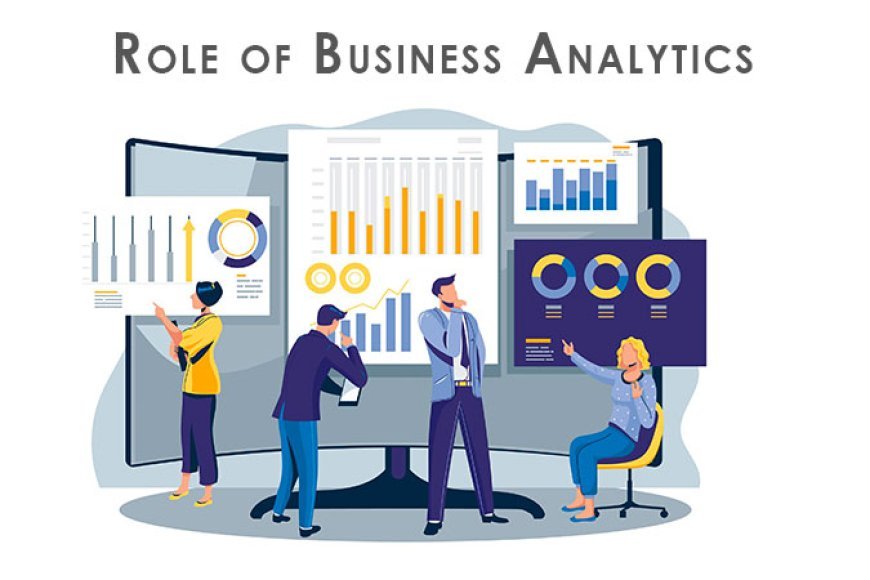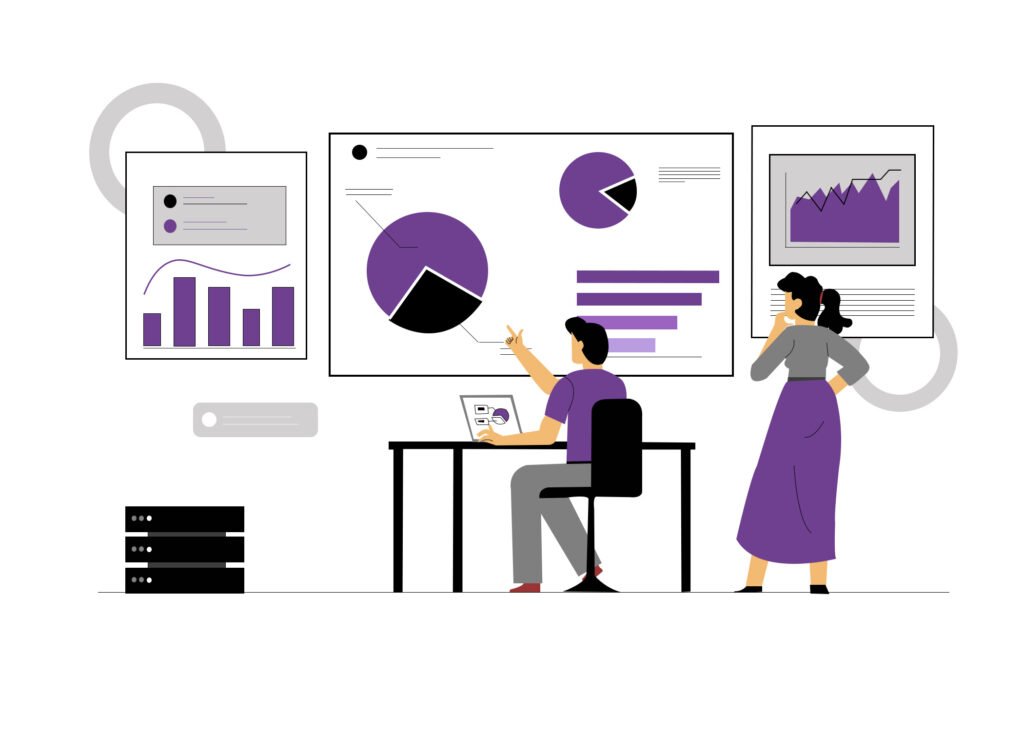The Role of Data Analytics in Driving Business Decisions
Data analytics has become a cornerstone in modern business decision-making, enabling organizations to leverage data to gain insights, enhance efficiency, and drive growth. Here’s how data analytics plays a crucial role in business decisions:
- Informed Decision-Making: Data analytics provides a factual basis for decisions by analyzing large volumes of data. This helps businesses move away from intuition-based decisions to data-driven ones, leading to more accurate and reliable outcomes.
- Identifying Trends and Patterns: Through techniques such as predictive analytics, businesses can identify trends and patterns that may not be obvious. This allows companies to anticipate market shifts, customer preferences, and potential risks, giving them a competitive edge.
- Optimizing Operations: Data analytics helps in identifying inefficiencies within business processes. By analyzing operational data, companies can streamline their operations, reduce costs, and enhance productivity.
- Enhancing Customer Experience: Understanding customer behavior and preferences through data allows businesses to tailor their products, services, and marketing strategies. This personalization improves customer satisfaction and loyalty.
- Risk Management: Data analytics enables businesses to identify potential risks and develop strategies to mitigate them. This proactive approach helps in safeguarding against financial losses and reputational damage.
- Measuring Performance: Data analytics provides tools for continuous monitoring and evaluation of business performance. Key performance indicators (KPIs) and other metrics can be tracked in real-time, allowing for quick adjustments and ongoing improvement.
- Supporting Strategic Planning: Analytics provides insights that are crucial for strategic planning. Understanding market dynamics, competitive landscape, and internal performance metrics helps in crafting robust, long-term strategies.

In conclusion, data analytics empowers businesses to make well-informed, strategic decisions by providing deep insights into their operations, market conditions, and customer behaviors. As a result, organizations that effectively utilize data analytics are better positioned to achieve sustained growth and success.
Sure! Let’s expand further on the role of data analytics in driving business decisions by diving deeper into specific applications and benefits across various business functions:
8. Personalizing Marketing Efforts
Data analytics allows businesses to analyze customer data to create targeted marketing campaigns. By understanding customer demographics, purchasing behavior, and engagement patterns, companies can develop personalized marketing strategies that are more likely to resonate with their audience, increasing conversion rates and maximizing return on investment (ROI) for marketing spend.
9. Product Development and Innovation
By analyzing customer feedback, social media sentiment, and product usage data, businesses can identify gaps in the market and opportunities for new product development. Data analytics also supports iterative product design by providing insights into what features customers value the most, allowing businesses to innovate continuously and stay ahead of the competition.
10. Optimizing Supply Chain Management
Data analytics can significantly improve supply chain efficiency by predicting demand more accurately, optimizing inventory levels, and identifying the best suppliers. Predictive analytics models can forecast demand based on historical data, seasonal trends, and external factors, helping businesses avoid overstocking or stockouts, thus reducing costs and improving customer satisfaction.

11. Enhancing Financial Planning and Analysis
Finance teams use data analytics to forecast revenue, manage expenses, and analyze profitability across different products, services, or business units. Advanced analytics can help identify trends in financial performance, enabling better budgeting and financial planning. Scenario analysis and financial modeling, powered by data, help businesses anticipate future challenges and opportunities.
12. Improving Human Resource Management
In HR, data analytics is used to enhance recruitment processes, optimize workforce planning, and improve employee retention. Predictive analytics can identify which candidates are most likely to succeed and stay in the company, while data-driven insights into employee engagement and performance can help HR professionals devise strategies to boost morale and productivity.
13. Supporting Environmental and Sustainability Initiatives
Data analytics helps organizations track their environmental impact and make more sustainable business decisions. By analyzing energy consumption, waste management, and supply chain sustainability, companies can reduce their carbon footprint and comply with environmental regulations. These efforts not only support corporate social responsibility (CSR) goals but can also enhance brand reputation and customer loyalty.
14. Facilitating Real-Time Decision-Making
With the advent of big data and real-time analytics, businesses can make immediate decisions based on current data. Real-time analytics allows companies to respond quickly to market changes, customer needs, or operational issues, enabling a more agile and responsive business model.
15. Enabling Competitive Benchmarking
Data analytics allows businesses to compare their performance against competitors and industry standards. By benchmarking key performance indicators (KPIs) such as sales growth, customer acquisition cost, and market share, companies can identify areas where they lag behind and develop strategies to improve their competitive position.
16. Driving Digital Transformation
Data analytics is a fundamental component of digital transformation strategies. As businesses increasingly adopt digital tools and platforms, analytics enables them to understand how these technologies impact their operations, customer interactions, and overall business outcomes. It provides a roadmap for implementing digital initiatives that drive efficiency, innovation, and growth.

17. Enabling Automated Decision-Making
With the integration of artificial intelligence (AI) and machine learning (ML) in data analytics, businesses are moving towards automated decision-making processes. AI-driven analytics tools can automatically detect anomalies, predict outcomes, and suggest actions without human intervention, enabling faster and more accurate decisions across various business functions.
18. Building a Data-Driven Culture
Beyond individual applications, data analytics fosters a culture of data-driven decision-making within organizations. By democratizing data access and providing training on analytics tools, businesses empower employees at all levels to make informed decisions based on data insights. This cultural shift enhances collaboration, improves decision quality, and drives innovation.
Conclusion
Data analytics is a powerful tool that spans every aspect of business operations, from marketing and finance to supply chain and human resources. By leveraging data analytics, companies can drive efficiencies, enhance customer experiences, innovate products and services, and ultimately achieve sustainable growth. As technology continues to evolve, the role of data analytics in business decision-making will only become more integral, reinforcing its importance in today’s competitive landscape.




Well